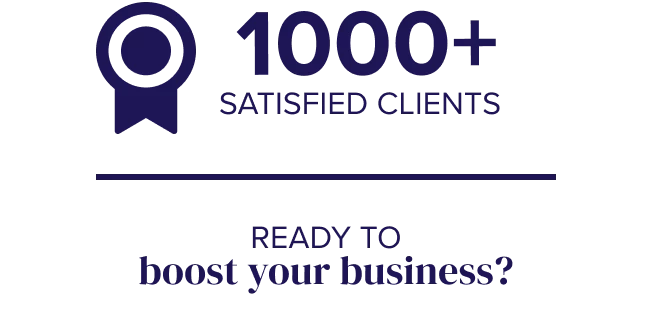A Reminder of Important Tax Changes for Electric Cars, Hybrids and Double-Cab Pickups
We at Ellis & Co strive always to keep our clients informed about significant tax changes that could impact their businesses. With the new tax year approaching, this is a reminder from our autumn statement of the key updates affecting electric vehicles (EVs), hybrids and double-cab pickups.
In this article, you’ll understand the changes that affect the Benefit-in-Kind (BIK) tax costs and influence how businesses can claim deductions on these vehicles. Comprehending these shifts is crucial for making informed decisions about company car fleets and vehicle purchases.
Electric Cars: Gradual Increase in BIK Tax Rates
In recent years, electric company cars have enjoyed relatively low Benefit-in-Kind (BIK) tax rates. However, as part of ongoing tax reforms, the BIK rates for electric vehicles will gradually rise.
For the 2024/25 tax year, the EV BIK rate for electric cars is 2% of the vehicle’s original list price. This rate will increase to 3% in 2025/26 and continue to rise annually until it reaches 9% in future years.
Example:
- A £100,000 electric car currently incurs a taxable benefit of £2,000 at the 2% BIK rate (roughly £800 annual tax for a 40% taxpayer).
- From April 2025, this will rise to 3%, increasing the taxable benefit to £3,000 (tax of £1,200 for a 40% taxpayer).
- At the 9% rate, the taxable benefit would be £9,000, resulting in an annual tax of £3,600 for a 40% taxpayer.
These increases represent a significant rise in the BIK costs for electric cars. While the overall tax burden for electric vehicles remains relatively low compared to other company cars, businesses and employees should plan ahead for these gradual increases.
Hybrids: Increasing BIK Tax and Stricter Emissions Tests
The BIK tax for hybrid cars will also rise over the coming years. In addition to this increase, there will be a new, stricter emissions test for company cars that are plug-in hybrid vehicles. This test applies to newly launched hybrid vehicles from January 2025, and by December 2025, it will also impact existing models on sale.
This change will lead to a higher CO₂ value for hybrid vehicles, which will, in turn, increase their BIK tax costs. As a result, hybrid cars purchased in 2025 and beyond may be less financially attractive as company cars due to higher BIK rates.
It’s important to note that there will be no retrospective changes to the CO₂ emissions values of vehicles already registered.
Double-Cab Pickups: New Tax Classification from April 2025
One of the most significant changes comes for double-cab pickup trucks, which will be reclassified for tax purposes starting from 6 April 2025. Currently, double-cab pickups with a payload of 1 tonne or more are treated as commercial vans for tax purposes, which allows them to benefit from lower BIK rates and more generous capital allowances.
However, from April 2025, these vehicles will no longer be treated as vans but as cars. This reclassification brings two major tax implications:
1. Higher BIK Charges:
Employees using a double-cab pickup for personal use will see a substantial increase in taxable benefit. Instead of the low fixed van benefit (£3,960 per year under current rules), the pickup will be taxed under car benefit rules (a percentage of the list price based on CO₂ emissions). This could result in thousands of pounds more in BIK for the employee. In short, the affordable flat-rate van BIK is going away, and these pickups will be taxed like any other company car.
2. Reduced Capital Allowances:
Businesses will lose the generous upfront capital allowances that vans enjoyed. Currently, a pickup classified as a van can qualify for 100% immediate relief. After reclassification, the pickup will be treated as a car, so you’ll only get tax relief over time through standard writing-down allowances. This means a much slower deduction of the vehicle’s cost against your business profits, impacting cash flow and tax planning.
If you’re considering purchasing or leasing a double-cab pickup, now may be the time to act.
Vehicles ordered before the 6 April 2025 deadline can continue to benefit from the old van tax rules for a transitional period (generally until April 2029 or until the vehicle is sold or the lease ends). By making purchases before the reclassification, you can take advantage of the current lower BIK rates and full capital allowances for a few more years.
If your business is planning to invest in electric cars or hybrids, these changes to BIK rates and emissions testing should be considered as part of your long-term tax and fleet strategy. We recommend speaking with one of our expert tax advisors at Ellis & Co to assess how these changes may affect your business and employees.
How Ellis & Co Can Help
Navigating the complexities of tax changes for vehicles can be challenging, but our team at Ellis & Co is here to provide expert guidance. Whether you’re looking to plan for the increased BIK charges on electric and hybrid cars or you need advice on the new classification for double-cab pickups, we can help you understand the implications and make informed decisions that benefit your business.
For more information or personalised tax advice, don’t hesitate to get in touch with us today.
About Ellis & Co
Ellis & Co is a leading accountancy firm specialising in bookkeeping, payroll, tax planning and business advisory services. We work with a diverse range of businesses, from start-ups to established companies, ensuring they have the financial clarity and support they need to succeed.
For more information on our bookkeeping or payroll services, or to speak with one of our new team members, please contact us at 01244 343 504 or fill out our form here.





